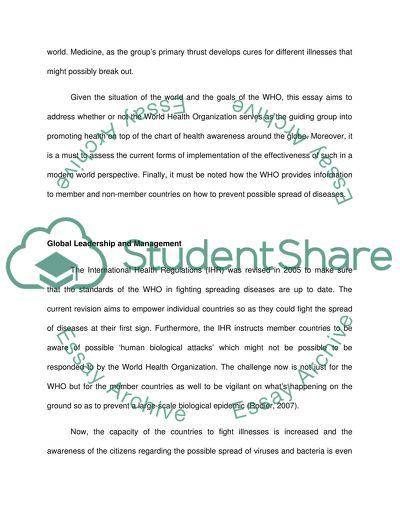Cite this document
(“How effective has the World Health Organization performed its main Essay”, n.d.)
How effective has the World Health Organization performed its main Essay. Retrieved from https://studentshare.org/miscellaneous/1571063-how-effective-has-the-world-health-organization-performed-its-main-functions-when-dealing-with-international-pandemics
How effective has the World Health Organization performed its main Essay. Retrieved from https://studentshare.org/miscellaneous/1571063-how-effective-has-the-world-health-organization-performed-its-main-functions-when-dealing-with-international-pandemics
(How Effective Has the World Health Organization Performed Its Main Essay)
How Effective Has the World Health Organization Performed Its Main Essay. https://studentshare.org/miscellaneous/1571063-how-effective-has-the-world-health-organization-performed-its-main-functions-when-dealing-with-international-pandemics.
How Effective Has the World Health Organization Performed Its Main Essay. https://studentshare.org/miscellaneous/1571063-how-effective-has-the-world-health-organization-performed-its-main-functions-when-dealing-with-international-pandemics.
“How Effective Has the World Health Organization Performed Its Main Essay”, n.d. https://studentshare.org/miscellaneous/1571063-how-effective-has-the-world-health-organization-performed-its-main-functions-when-dealing-with-international-pandemics.


